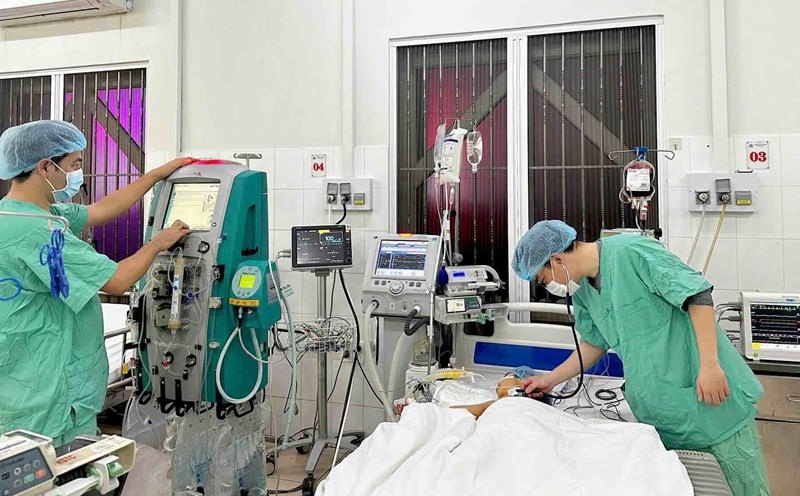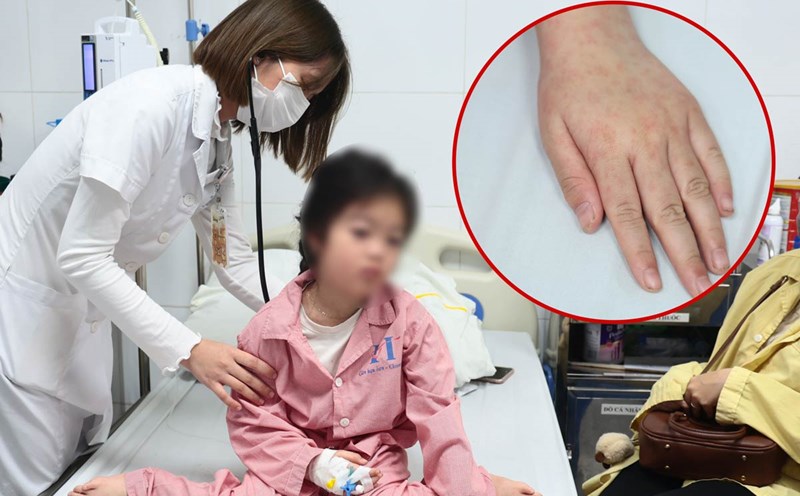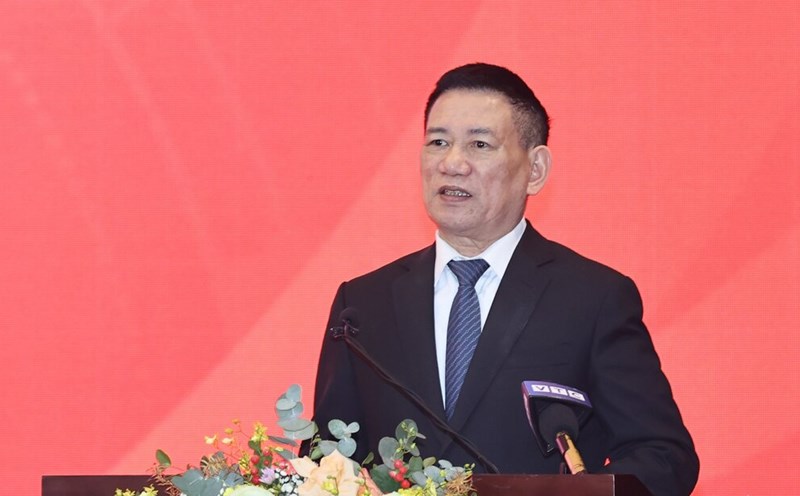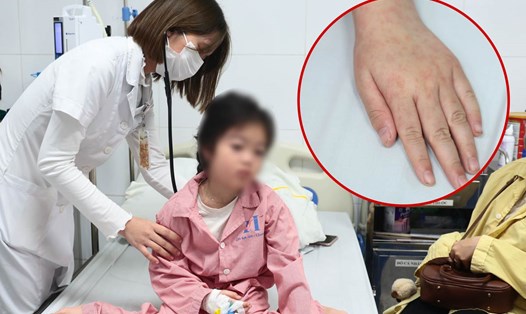On April 2, Children's Hospital 2 informed that the unit had just treated patient N (female, 14 years old, Lam Dong province) with autoimmune encephalitis with antibodies to NMDA antibodies.
More than a month ago, patient N often had multiple headaches, difficulty sleeping, and little contact with people. After that, the children screamed, agitated, cried and laughed for no reason, could no longer remember, could not recognize the family, and could not talk.
The family took the child to a local hospital for treatment but the condition did not improve. After that, the family took the child to Children's Hospital 2. When admitted to the hospital, the child kept screaming, holding his arms and legs, not recognizing his family members, and self-destroying himself such as biting his lips, biting his tongue, causing bleeding, soft tissue damage, and broken teeth.
The family had to mobilize 3-4 people to hold the child's limbs and jaw so that the child would not harm himself. Doctors had to inject sedatives and anti-concussion drugs to reduce this condition.
The child was closely monitored in the emergency room but still suffered many injuries such as serious tear in the tongue, loss of a tooth, and many scratches on the limbs. The child was tested for a brain drain, a brain MRI scan and a sample was sent for autoimmune encephalitis testing. The results showed that children with autoimmune encephalitis have antibodies to NMDA receptors.
Initially, the child was treated according to the autoimmune encephalitis regimen with a high dose of corticoids of 30 mg/kg for 5 days, but did not respond. After consultation, the doctors decided to treat huyet tuong replacement therapy, performing 5 cycles in 10 days.
By the third cycle, the child began to reduce screaming and sleep. In the fourth cycle, the patient followed the doctor's instructions but could not talk. When completing the 5th huyet tuong replacement cycle, children can speak short sentences, walk slowly, and eat through their mouths.
Children are gradually recovering, their perception is better and they are no longer hallucinating. The child still needs to be treated and monitored periodically in the coming time to ensure complete recovery and promptly prevent the risk of recurrence.
According to Dr. Pham Hai Uyen - Deputy Head of the Neurology Department of Children's Hospital 2, autoimmune encephalitis is an undygnosed disease that progresses slowly, easily confused with mental disorders. The case of patient N is a testament to the importance of timely detection and intervention. If delayed, the child's condition can become more dangerous.
Dr. Hai Uyen also emphasized that when children have unusual signs in behavior, awareness or sleep, parents should not be subjective but need to take the children to specialized medical facilities for examination as soon as possible.











